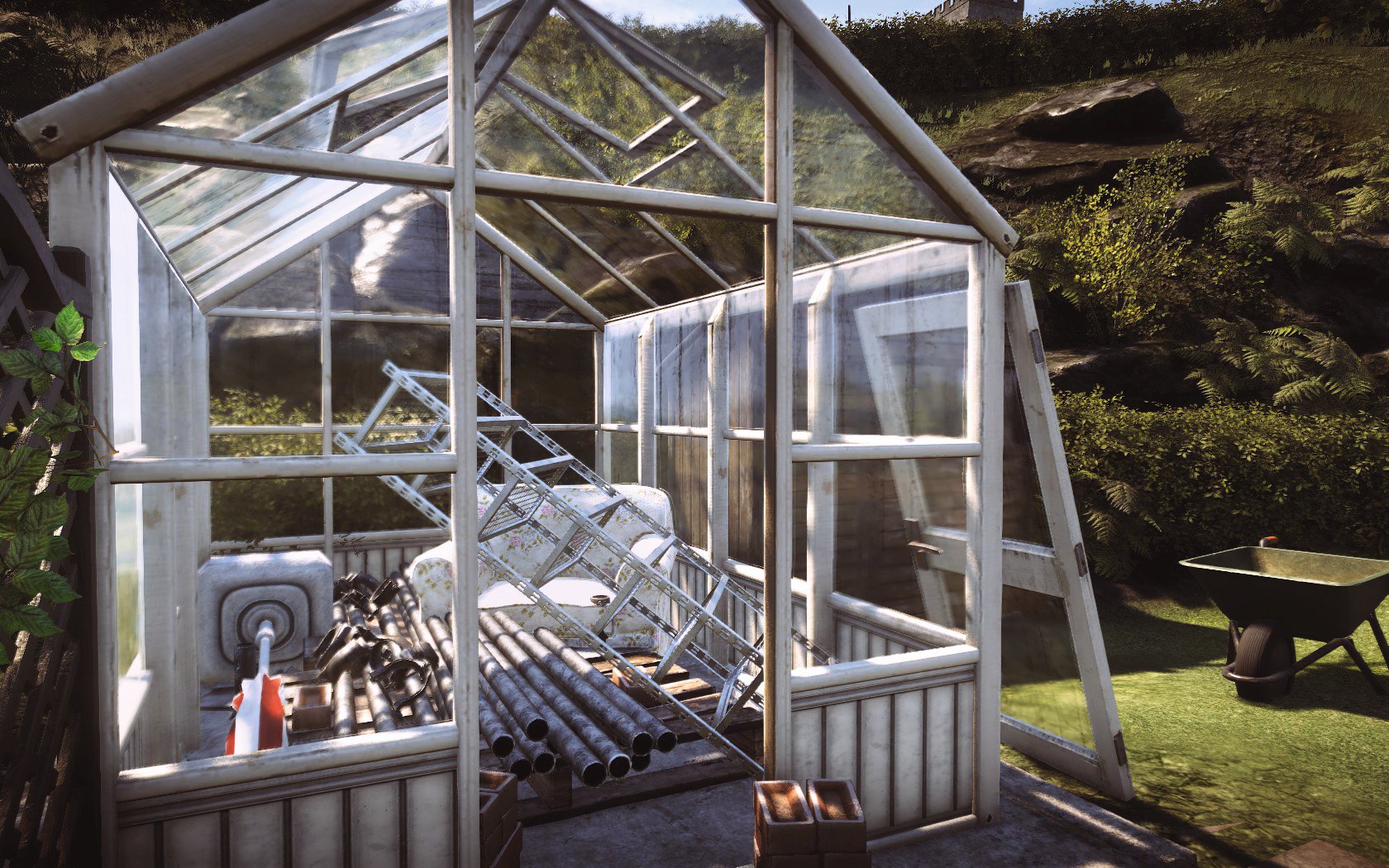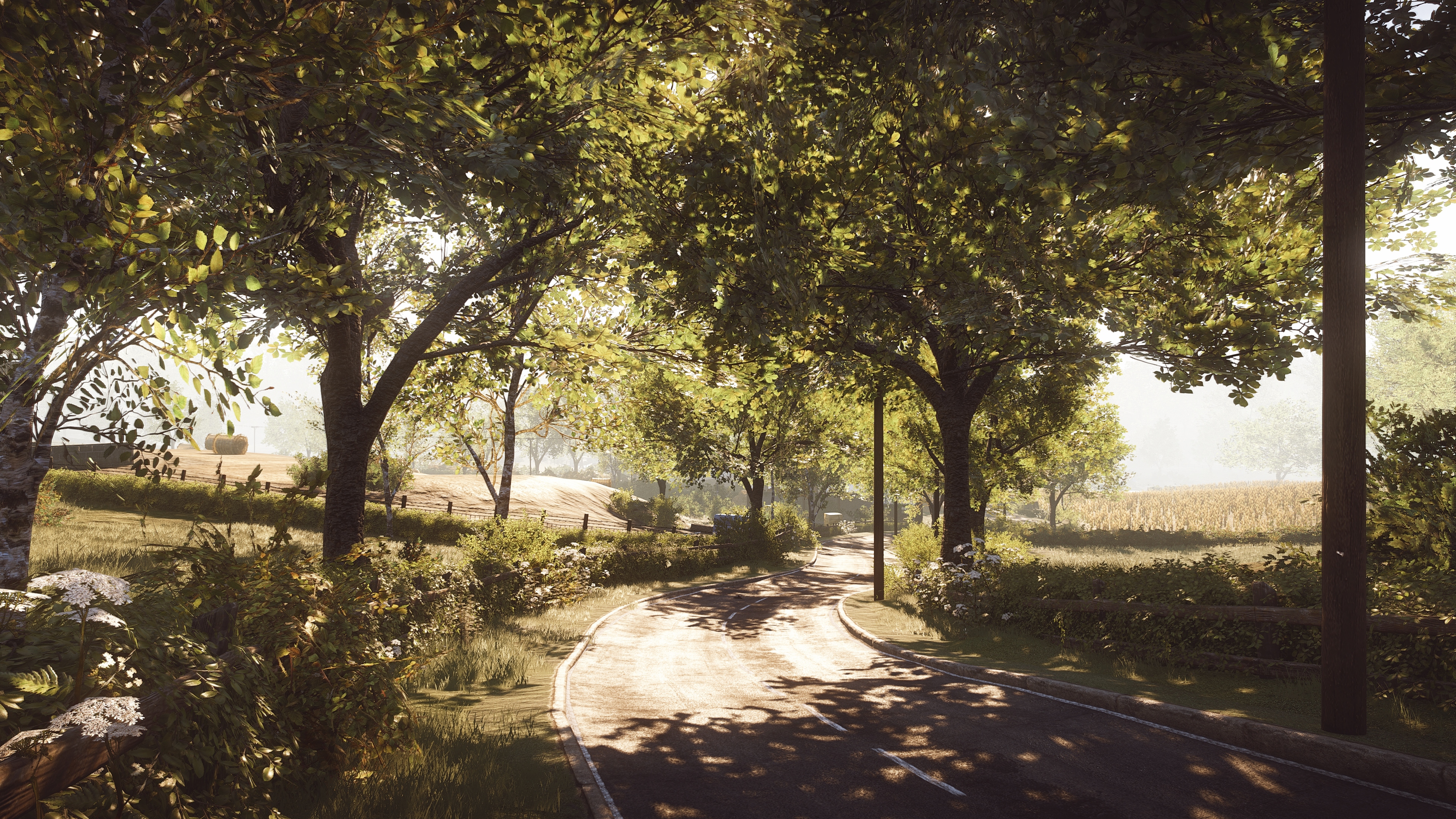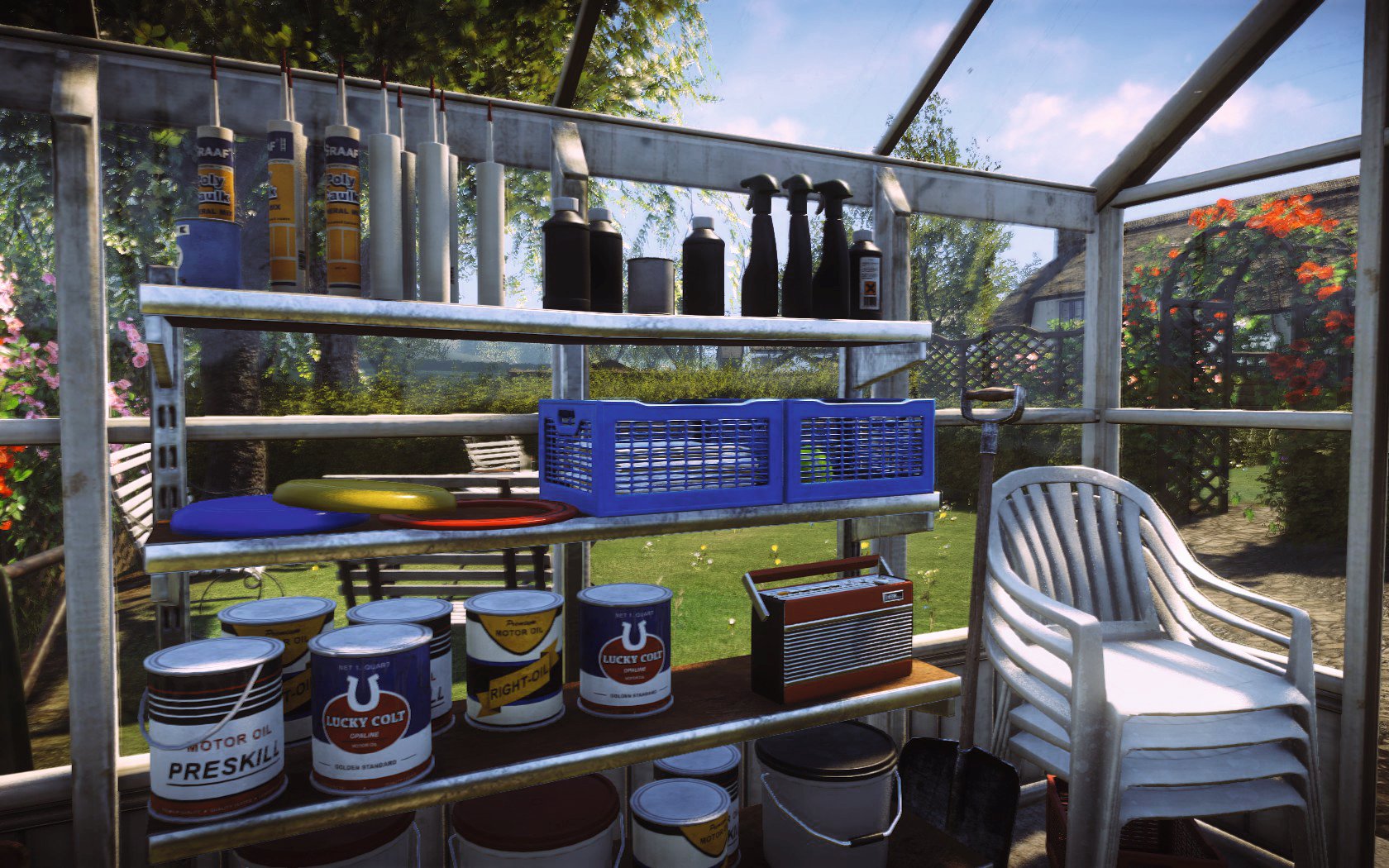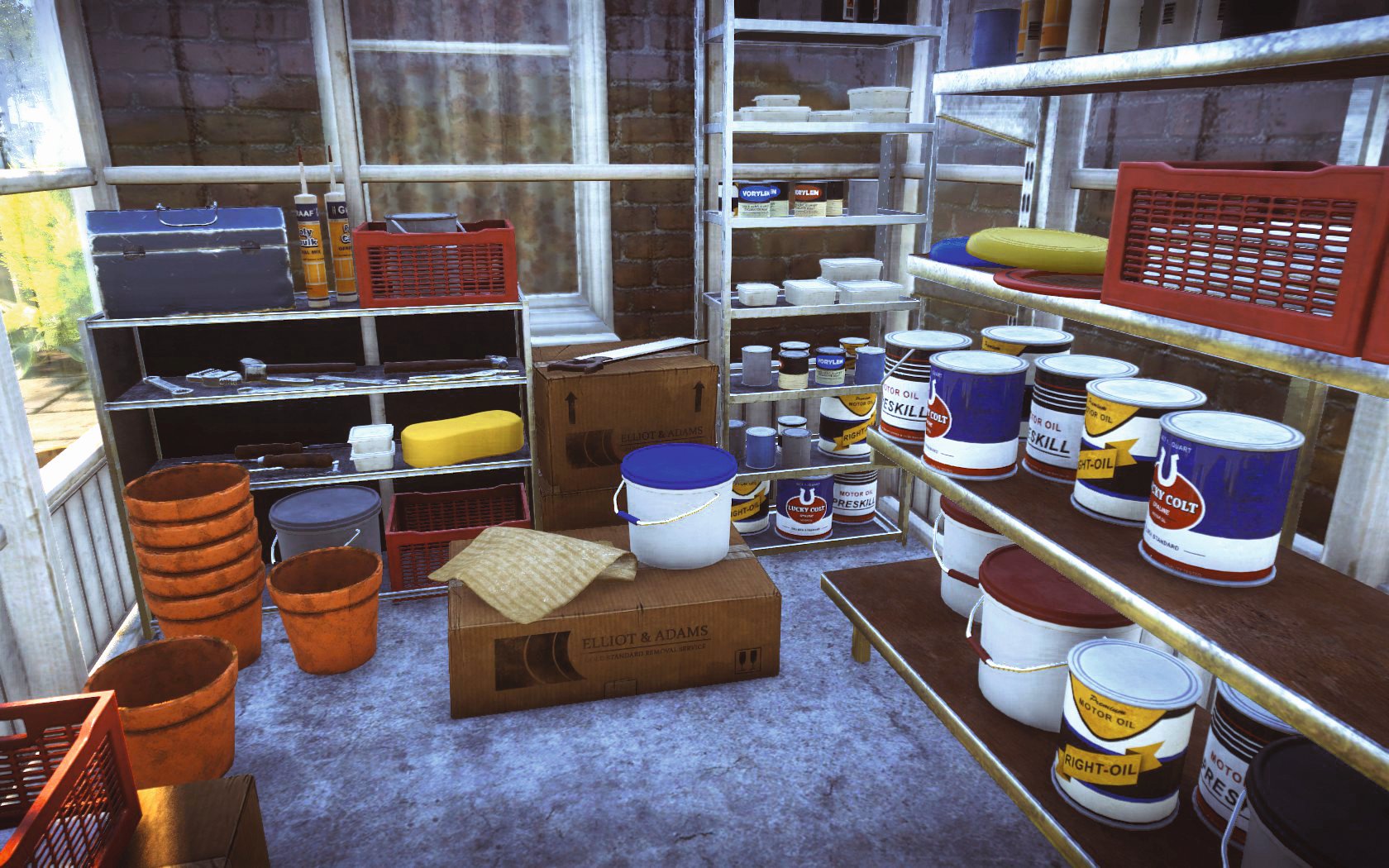Exploring a beautiful world you can barely touch in Everybody's Gone To The Rapture
But is it art?



In Now Playing articles PC Gamer writers talk about the game currently dominating their spare time. Today Tony yearns for interaction in Everybody's Gone To The Rapture.
I’m standing in someone’s greenhouse , for pity’s sake. I’m looking, of my own free will, at stacked garden chairs, tubs of paint and orderly rows of silicon-based bathroom sealant.
There is nothing for me here. Nothing to interact with, nothing to advance the plot. But I had to look anyway, just in case there was. I had to let myself into this person’s back garden, hobble across their lawn at Rapture ’s excruciating walking speed, and look in their greenhouse. Now I’ve got to hobble away again. It’s my third greenhouse today. A while ago I was peering into someone’s garden shed. Before that I was standing in someone’s upstairs spare room, looking vaguely at the inoffensive wallpaper and wondering what I was doing with my life.
Don’t get me wrong, Everybody’s Gone to the Rapture is an incredible feat of level design. They’ve created an entire English country village, from cottage gardens to bus shelters and cow parsley nodding at the borders of dusty tarmacked roads. You can ramble for hours around the surrounding fields and woods. It’s an amazing achievement.

And yet...
Frictional’s Soma had a lot of rooms full of junk too. But you could pick that junk up and play with it. It wasn’t just painted onto the level the way it is here. You could open every cupboard and take out all the things inside, and that contributed hugely to the illusion that you were in a real, physical place. The makers of Rapture don’t want you to have that level of interaction. They’ve made an art exhibit, rather than a game. They want you to look at what they’ve created, and listen to the dialogue and the carefully cued music, but they don’t want you to mess it up.
As with most works of art, the idea is that you’re supposed to feel something. To a certain extent, you allow the artist to impose their vision on you. But I’m beginning to wonder if it’s worth the effort, when so much of that vision is just an obsessive recreation of everyday objects. I could be rescuing hostages in Afghanistan right now. I could be writing my novel. Why am I spending my time looking in people’s sheds?

I’m still in the greenhouse. I’d better get on. Maybe there’ll be something interesting in next door’s outbuildings. I take a last look at the generous selection of bathroom sealants, and hobble off the way I came.
Keep up to date with the most important stories and the best deals, as picked by the PC Gamer team.
As the elaborate scenery crawls slowly past, I reflect, not for the first time, that Everybody’s Gone to the Rapture is not so much a walking simulator as a walking-frame simulator. How old am I supposed to be, exactly? 83? Do I have an arthritic hip? It would make a weird kind of sense, given that I’m essentially pottering around an English village to hear the everyday stories of country folk. Perhaps that’s the game’s big secret: at the end you wake up to find you’re actually a little old lady living in sheltered accommodation who nodded off listening to a long-running rural drama on BBC Radio Four. I could cope with that. Just so long as it doesn’t turn out to be some pseudometaphysical wank about how we’re all isolated but looking for connection.

